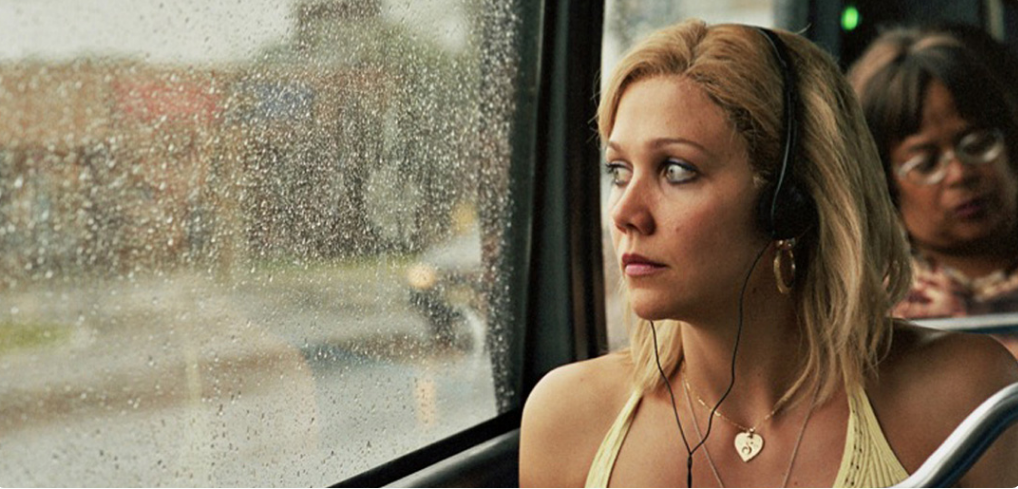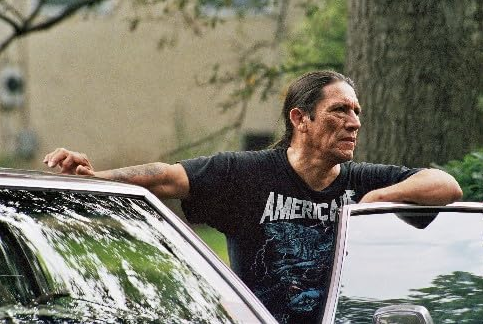[image]
The Woman Chaser (1999)
*****
Part Two: The Beauty of Loose Filmmaking (for part one, click here).
So, how did you end up in Seattle?
Well, the first time I was here, The Woman Chaser was playing at the Varsity, and so I came up to do some press, and I met some people. And then the SIFF Screenwriter's Salon asked me to come back to read a screenplay that I was working on called Black Lava, which I was very fond of, with this incredible playwright in LA named Richard O'Hannacy [not sure about the spelling]. And I worked on that after The Woman Chaser, and I thought, well, I can be even more free and more independent than ever, because I'd had a little success with The Woman Chaser. So, I wrote something with him--he wrote it--and I was working on it with him, and it was very...out there. And I came up here, and the only time it's ever really been exposed was to this audience that SIFF put together, and I met some people here--I met Charles.
That was my next question. I was go-
ing to ask how you met Charles Mudede.
I met him briefly, and then I came back and stayed away for a year. I was
dating a girl up here, and didn't really stay in touch... And I started working on
this idea. I was very influenced by [Jean-Pierre and Luc Dardennes'] Rosetta.
I think a lot of people have been influenced by Rosetta.
And I lived in Africa for awhile, and I thought, maybe there's a way
to do a story about a child soldier that was somewhat similar in the
approach. I guess the difference between Dogme films and the Dar-
dennes Brothers is that the Dardennes have that emotional pull.
They're not dark and grainy either.
I like their style a lot. There's that simple desire of their protagonists. There's
a very clear social...not message, but [it's] very simple, powerful stuff. So, I star-
ted working on this story about a child soldier returning from a civil war and wan-
ting to re-engage his childhood and having great difficulty doing it. I wrote that
on my own and I was up here and...in the process of getting it financed and...
 Charles Mudede
Charles MudedeThat was called Super Power?
Yes, that was called Super Power. I started to read some of Charles's journalism, and I thought it was very funny and very smart, and I thought, well, this guy's from Africa. Maybe I should show him the script, and if he hates it... I might as well show a critic the script before I make it--especially an African critic--and if it's terrible, then I'll know it. So, I sent it to him, and he thought it was okay, and we started up a friendship, and I said, Why don't you work on this with me? And he said, All right, so we worked on it again, and then it got into the Sundance Lab, and so we went to the Lab...and then it really had some momentum. We went to Africa and scouted locations and were all ready to come back and...show where I was gonna shoot it and who the production company was gonna be that facilitated it in Africa. And the company in New York moved in another direction by the time I got back. I think they actually financed a film that played at Sundance two years ago...Craig Lucas, he's a Seattle playwright that went on to do Forty Shades of Blue.
That was Ira Sachs.
It was either that or...
Craig Lucas did an adaptation
of his play...The Dying Gaul?
Yeah, I think it was The Dying Gaul. So, they made a good choice,
and they did it. Then we came back. We had a lot of effort and e-
motions put into that script and then we just said, well, it's a terrib-
le business. We've got to be creative and we've got to make a film,
and so we said what can we do in our own backyard, instead of in
Africa. And that's how Police Beat came into being, which had all
these great vignettes. I basically appropriated the column.
But that didn't provide the actual narrative.
It's just like material. I said, Can I go through all your work?
When I first heard about it, I wondered how can anyone make a movie out
of that. Obviously, there's a lot in the film that didn't come from the column.
That's true.
I wouldn't have seen a movie in that. I would've seen a documentary.
Maybe someone should make a film out of David Schmader's Last Days...
Yeah, that's the beauty of loose filmmak-
ing. It's that...every second was practi-
cally written without a formal script.
It didn't have a formal script?
Oh, it was very loose, very loose.
[image]
DP Sean Kirby and star Pape S. Niang on the set of Police Beat
That reminds me, I caught a press screening of Police Beat at SIFF last year. Afterwards, there was a screening of March of the Penguins, and Charles was
sitting in front of my friend and I. The whole time, he was hunched over with his head in his hands. I wondered if he had heard somebody say something after Police Beat that rubbed him the wrong way, although he doesn't strike me as overly sensitive. Then I read his review of Penguins in The Stranger. It has this classic quote--I hate it and I love it--something about how the only animal worth making a documentary about is the human or a creature with two legs or something like that.
That sounds like a definite Charles quote. He's gonna eat his words now, right?
About what?
We're working on a documentary about a creature with four legs.
That's a good point. By the way, the Internet Database also lists a film called The
Minotaur. I'm assuming that's not the title anymore or that it's a different film?
So, we went to Sundance with Police Beat. It was very exciting, and we
got into business with Ted Hope and his company. We had this project
called The Minotaur, which was this very Northwest, post-9/11...
So that has no relation to the documentary?
None whatsoever.
I just assumed--half man, half beast.
We've noted the thematic aspects of it. [laughs] That was a story about the global theater of terrorism. How panic was embodied by a variety of nationalities colliding in Vancouver and heading across the border down into Seattle. It was a narrative script, and it was in the political thriller genre, and we worked on that all last year, a very long time. And it was a great time in our lives to work on it, and we were very optimistic that it was going to be the next plateau in our film career...but just having some kind of an agreement with a good company really doesn't mean anything unless... Every time I fear that I've turned over some control to some other person in terms of timing and enthusiasm, it's been a disaster. I've never found anybody, except for maybe Charles, who can work as passionately and as diligently and as fast as one would like the rest of the world to work, because filmmaking is a very slow business. And the more successful a partnership you have, the more problems they will have. I think we were one of several projects. It was a disappointing experience and part of it was our own fault. What we were writing was not as focused as it could have been. We had some people in Seattle, some extremely good people. Just to be able to work on this for a year, we partnered with this guy named Jeremy Meyer [Police Beat executive producer], who is this very smart, very savvy guy, who's supported some of the arts here at the Northwest Film Forum. We were very, very lucky to have a year to work with him... Some people care about Seattle filmmaking to the degree that they will invest their hard-earned dollars to allow artists to work. It's a very rare, special opportunity. It doesn't happen much, but we had it last year, and I would have to say we failed. But that's the way it works. You can't make everything successful. So, that's what The Minotaur was.
[image]
Funky Minotaur (Christian MacNevin)
Next: Blue and Green Noir
*****
Endnote: Police Beat image from The Seattle P-I (Josh-
ua Trujillo) and Charles Mudede image from GreenCine.
Click here for Andy Spletzer's GC interview with Mudede.

















